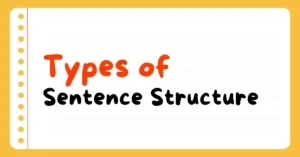Learning English involves more than just vocabulary—it’s about understanding how to express what others say. One key skill in this is moving between direct speech (quoting someone’s exact words) and reported speech (paraphrasing what was said). Today, we’ll explore how to transform different tenses from direct to reported speech, step by step. Let’s dive in!
What’s the Difference Between Direct and Reported Speech?
- Direct Speech: Exact words spoken, often enclosed in quotation marks.
Example: She said, “I work in Paris.” - Reported Speech: Retelling what someone said, adjusting the grammar to match the context.
Example: She said she worked in Paris.

How Tenses Change in Reported Speech?
When switching from direct to reported speech, the tense often shifts back one step. Let’s break it down:
1. Present Simple → Past Simple
Direct Speech: “I work in Paris.”
Reported Speech: He said he worked in Paris.
2. Present Continuous → Past Continuous
Direct Speech: “Bob is annoying me.”
Reported Speech: Jane said Bob was annoying her.
Also read: English Spelling Rules With Examples
3. Present Perfect Continuous → Past Perfect Continuous
Direct Speech: “I have been working here for two years.”
Reported Speech: He said he had been working there for two years.
4. Past Simple → Past Perfect
Direct Speech: “My friend gave me a bar of chocolate.”
Reported Speech: He said his friend had given him a bar of chocolate.
5. Past Continuous → Past Perfect Continuous
Direct Speech: “The team were playing well.”
Reported Speech: They said the team had been playing well.
Also Read: 7 Different Styles of English
6. Past Perfect → No Change
Direct Speech: “I had arrived before the game.”
Reported Speech: She said she had arrived before the game.
➡️ Note: The past perfect tense does not change when reporting speech.
Also Read: Basic Grammar Lesson for Beginners
7. Past Perfect Continuous → No Change
Direct Speech: “I had been working for two hours.”
Reported Speech: He said he had been working for two hours.
➡️ Note: Like the past perfect, the past perfect continuous tense remains unchanged.
Quick Tips for Accurate Reporting
1. Change Pronouns: Adjust pronouns based on who’s reporting.
I work in Paris.” → He said he worked in Paris.
2. Shift Time and Place Words: Adapt expressions like “here,” “today,” or “now.”
“I’ll go there tomorrow.” → She said she would go there the next day.
3. No Change in Universal Truths: Keep the tense for facts.
“The sun rises in the east.” → He said the sun rises in the east.
Explore More:
- Well vs. Good: What’s the Difference and When to Use Each
 What is the difference between good and well. These two words might seem similar, but they’re used in …
What is the difference between good and well. These two words might seem similar, but they’re used in … - Have You vs. Did You: What’s the Real Difference?
 Imagine you’re meeting a friend in the evening, and you want to ask if they …
Imagine you’re meeting a friend in the evening, and you want to ask if they … - Difference Between I have had and I had had
 Have you ever found yourself tangled in the web of “I have had” and “I …
Have you ever found yourself tangled in the web of “I have had” and “I … - Understanding and Fixing Sentence Fragments
 In this lesson, you will be learning about sentence fragments. Ever written something that looks like …
In this lesson, you will be learning about sentence fragments. Ever written something that looks like … - Types of Sentence Structure: Simple, Fragmented, or Run-On
 In this English Grammar lesson, you’ll be learning about sentence structure, specifically focusing on simple sentences, fragments, and run-on …
In this English Grammar lesson, you’ll be learning about sentence structure, specifically focusing on simple sentences, fragments, and run-on …




